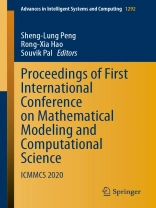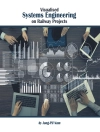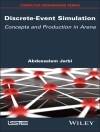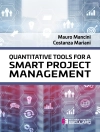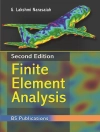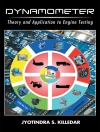This book presents the most recent scientific and technological advances in the fields of engineering mathematics and computational science, to strengthen the links in the scientific community. It is a collection of high-quality, peer-reviewed research papers presented at the First International Conference on Mathematical Modeling and Computational Science (ICMMCS 2020), held in Pattaya, Thailand, during 14–15 August 2020. The topics covered in the book are mathematical logic and foundations, numerical analysis, neural networks, fuzzy set theory, coding theory, higher algebra, number theory, graph theory and combinatory, computation in complex networks, calculus, differential educations and integration, application of soft computing, knowledge engineering, machine learning, artificial intelligence, big data and data analytics, high-performance computing, network and device security, and Internet of things (Io T).
表中的内容
Chapter 1. Maximum matching in Koch Snowflake and Sierpenski Triangle.- Chapter 2. A Study of Stochastic Ecological Model with Prey Harvesting as a Tool of Disease Control.- Chapter 3. Eccentric Distance Sum in Graph of Chemical Compounds Using Domination.- Chapter 4. Analysis of Sierpinski Triangle Based on Fuzzy Triangular Numbers and Dihedral Group.- Chapter 5. Near-Optimal Cable Layout Design Of A Wind Farm Using Genetic Algorithm.- Chapter 6. Inventory Cost Estimation Using Brownian Motion.- Chapter 7. Applying negative association rule utilizing unsupervised machine learning.- Chapter 8. Integrated network of Pearson correlation coefficients, Kendal-Tao, Spearman-Rao and its impact on disease, health indicators and mortality ratings in Babil Province.- Chapter 9. The Estimate Function of Schrödinger Operator.- Chapter 10. E- Learning In Data Analytics on Basis of Rule Mining Prediction in Data Mining Environment.- Chapter 11. Determination on Apriori and clustering algorithms based on crime against female Permanency- Prediction in Tamil Nadu State.- Chapter 12. Io T Implementation at Global Enterprises for Progressive Human resource Practices.- Chapter 13. An Empirical Study of Heart Disease Prediction System Using Various Machine Learning Classification Algorithms.- Chapter 14. FPGA Implementation of Scaled “Quasi-Cyclic LDPC” Decoder Using High-Level Synthesis.- Chapter 15. Automatic Road Enforcement Detection System Using Intelligent Robust Fuzzy Trained Stochastic Neural Network.
关于作者
Sheng-Lung Peng is a Professor and the director (head) of the Department of Creative Technologies and Product Design, National Taipei University of Business, Taiwan. He received the Ph D degree in Computer Science from the National Tsing Hua University, Taiwan. He is an honorary Professor of Beijing Information Science and Technology University, China, and a visiting Professor of Ningxia Institute of Science and Technology, China. He is also an adjunct Professor of Mandsaur University, India. Dr. Peng has edited several special issues at journals, such as Soft Computing, Journal of Internet Technology, Journal of Real-Time Image Processing, International Journal of Knowledge and System Science, MDPI Algorithms, and so on. His research interests are in designing and analyzing algorithms for Bioinformatics, Combinatorics, Data Mining, and Networks areas in which he has published over 100 research papers.
Rong-Xia Hao is a professor and Ph D student supervisor of the department of Mathematics at Beijing Jiaotong University, Beijing, P.R.China. She received the Diploma and Ph.D. degrees from Beijing Jiaotong University in 2002. From 1998 to 2006, she was an associate professor. Since 2006, she was a professor at Department of Mathematics, Beijing Jiaotong University. She received Beijing Jiaotong University Zhi Jin Foundation Outstanding Youth Teaching Award in 2007 and the First Prize of 2008 Excellent Paper Awarded by Beijing Operations Research Society. She is supported by National Natural Science Foundation of China for several times. She published over 80 international journal papers. Her research interests include graph theory, interconnection network and fault tolerant computing. She visited Georgia Institute of Technology for one year in 2013 and visited West Virginia University for half of a year in 2006 as a visiting scholar. She is a mathematical reviews reviewer, and an associate Editor of the International Journal of Computer Mathematics Computer Systems Theory.
Souvik Pal, Ph D, is currently associated as an Associate Professor and Head of the Computer Science and Engineering Department at the Global Institute of Management and Technology, West Bengal, India. Prior to that, he was associated with Brainware University, Kolkata, India; JIS College of Engineering, Nadia; Elitte College of Engineering, Kolkata; and Nalanda Institute of Technology, Bhubaneswar, India. Dr. Pal received his BTech, MTech, and Ph D degrees in the field of Computer Science and Engineering. He has more than a decade of academic experience. He is author or co-editor of 12 books from reputed publishers, including Elsevier, Springer, CRC Press, and Wiley, and he holds three patents. He is serving as a series editor for “Advances in Learning Analytics for Intelligent Cloud-Io T Systems”, published by Scrivener Publishing (Scopus-indexed) and “Internet of Things: Data-Centric Intelligent Computing, Informatics, and Communication”, published CRC Press, Taylor & Francis Group, USA. Dr. Pal has published a number of research papers in Scopus / SCI-indexed international journals and conferences. He is the organizing chair of RICE 2019, Vietnam; RICE 2020 Vietnam; ICICIT 2019, Tunisia. He has been invited as a keynote speaker at ICICCT 2019, Turkey, and ICTIDS 2019, Malaysia. His professional activities include roles as associate editor and editorial board member for more than 100+ international journals and conferences of high repute and impact. His research area includes cloud computing, big data, internet of things, wireless sensor network, and data analytics. He is a member of many professional organizations, including MIEEE; MCSI; MCSTA/ACM, USA; MIAENG, Hong Kong; MIRED, USA; MACEEE, New Delhi; MIACSIT, Singapore; and MAASCIT, USA.
